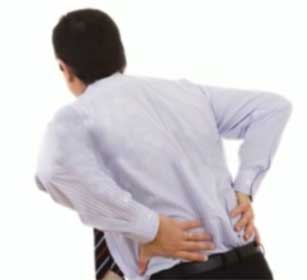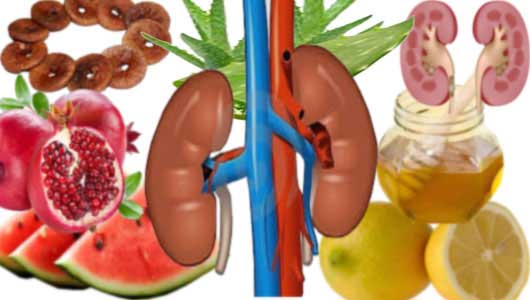Kidney Infections (pyelonephritis) : Definition, symptoms, diagnosis, treatment, home remedies
Most of the urinary tract infections include just the bladder and urethra (the lower urinary framework). Pyelonephritis comes about when a UTI advances to include the upper urinary framework (the kidneys and ureters).
The kidneys filter the blood to deliver urine. Two tubes are present in the kidney called as ureters convey urine starting from the kidneys to the bladder. Urine goes from the bladder out of the body through the urethra.
Most instances of pyelonephritis are difficulties of normal bladder infections. Microbes enter the body through the skin around the urethra. They then go up the urethra to the bladder.

Kidney Infections
In some cases, microorganisms get away from the bladder and urethra, making a trip up to the ureters from ureters to one or both kidneys.
Pyelonephritis is a possibly genuine kidney disease that can spread to the blood, bringing on the extreme ailment. Luckily, pyelonephritis is quite often treatable with antibiotics.
The urethra is much shorter in ladies than in men, which is one motivation behind why ladies are more powerless against UTIs and pyelonephritis.
Signs and Symptoms of Pyelonephritis
At least Half of women in their lifetime experience urinary tract infections. Pyelonephritis may begin with comparable indications. Notwithstanding, once the contamination has spread to the kidney, indications of more extreme ailment generally result. They include:
- Pain in the back or flank pain
- Fever or chills
- Feeling wiped out (discomfort)
- Nausea or vomiting after heavy work
- State of confusion (especially in elderly)
Pyelonephritis may bring about detectable changes in the urine, for example,
- Blood in the urine (hematuria)
- Cloudy urine
- Pain while urinating
- Urinary Incontinence
Pyelonephritis Causes Are:
Frequently, the microscopic organisms that cause pyelonephritis are the same as those that cause normal urinary tract infections. Microscopic organisms found in stool, (for example, E. coli or klebsiella) are generally regular. Extraordinarily, microscopic organisms from the skin or nature cause pyelonephritis.
- Conditions that make diminished urine stream make pyelonephritis more probable. At the point when urine stream moderates or stops, microbes can all the more effortlessly go up the ureters. A few reasons for urine hindrance include:
- Benign prostatic hypertrophy (BPH)
- Stomach or pelvic masses (as from growth)
- Stones in the bladder, ureters, or kidneys
- Kidney stones add to pyelonephritis by giving a place to microorganisms to develop while avoiding the body’s barriers.
- Individuals with diabetes or conditions that impede the invulnerable framework will probably get pyelonephritis.
Pyelonephritis Is Diagnosed Through:
- Specialists may depend on different tests to analyze pyelonephritis:
- History. Recounting the account of your disease and particular side effects helps a specialist make the analysis of pyelonephritis.
- Physical examination. A specialist notes a man’s general appearance, essential signs, and presses over the kidneys to check for delicacy.
- It can be diagnosed through Urinalysis, Urine culture, Blood culture, CT Scan, Kidney ultrasound.
Notwithstanding diagnosing pyelonephritis itself, specialists search for any conditions that make pyelonephritis more probable. - For instance, kidney stones or birth imperfections of the urinary tract can expand the possibility of a contamination. Both are possibly correctable, which will decrease the chances of future kidney infections.
Treatment of Pyelonephritis (kidney infection)
Pyelonephritis is a disease that dependably requires treatment with antibiotics. Home cures alone aren’t powerful or suggested for pyelonephritis.
For most instances of pyelonephritis, hospitalization isn’t required. Home treatment is fitting if a man can get around and can reliably take oral antibiotics. For instance, they should not be limited to bed or routinely regurgitate.
Pharmacologic Approach
Hospitalization is required to treat more extreme pyelonephritis, in any case. Intake of antibiotics intravenously in the healing facility guarantees that the prescription is coming to the kidneys.
Antibiotics are for the most part endorsed for a sum of no less than seven days. Some portion of this course of treatment might be given in the healing facility intravenously; the rest of the treatment might be taken at home as pills.
In some cases, pyelonephritis may advance to frame a pocket of disease (ulcer). Abscesses are troublesome or difficult to cure with antibiotics alone and must be depleted. Regularly, this is finished with a tube embedded in the skin on the once more into the kidney boil (a technique called a nephrostomy).
Home Remedies For Kidney Infection (pyelonephritis)
The way we take care of outer appearance by cleansing and using suitable things for proper cleaning and maintaining hygiene. Likewise, our internal body needs to take care of by using healthy food products which cleanse our body internally as well as externally.

Home Remedies For Kidney Infection (pyelonephritis)
- Drink parsley juice every day after meals.
- Use apple cider vinegar as a detox water for proper cleansing of the body.
- Increase intake of vitamin C on daily basis.
- Drink at least 8-10 glasses of water regularly.













































